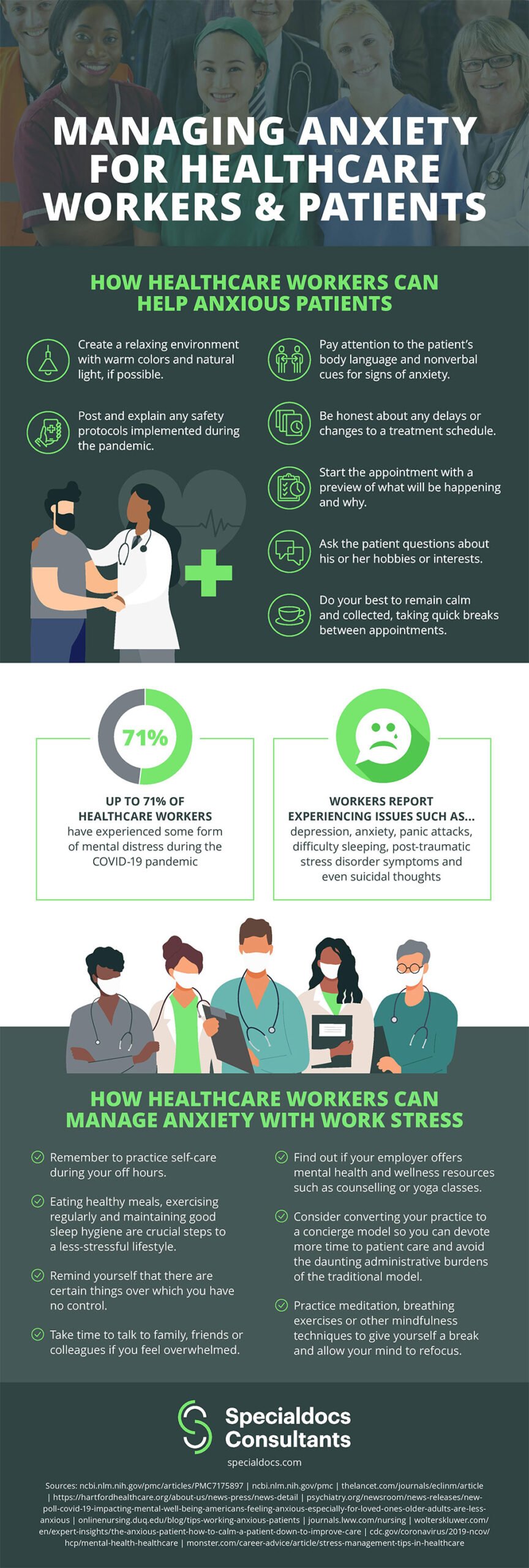The current COVID-19 pandemic has been a significant source of stress and anxiety for everyone, but especially for healthcare professionals and their patients. The added strain and worry created by the current situation has had lasting impacts on doctors, nurses, and other professionals. According to a recent study, more than 70% of medical workers have reported experiencing some type of mental distress as a result of the pandemic. Another survey found that nearly half of Americans are feeling nervous about the possibility that they or someone they love will contract the disease.
During these exceptionally stressful times, it is more important than ever to develop coping strategies for managing anxiety, particularly for those on the front lines of the medical profession. This is not only important for their well-being, but for the people they serve. When healthcare workers understand how to manage stress, they can deliver better results and help patients remain calm.
For example, doctors, nurses and orderlies can begin each session with a patient by reviewing what will happen during the appointment and explaining the processes. Any changes to a treatment plan or schedule should be handled honestly and as soon as possible. Additionally, using clear, concise language that the patient will understand can go a long way to relieving any nerves. Another helpful technique is to distract people from their issues by talking about their hobbies and other personal interests. Professionals can also help ease troubled minds by creating a more relaxing environment with natural light, warm colors and soothing music.
Of course, it may be difficult for a patient to de-stress if the person treating him or her is also suffering from anxiety. The weight of caring for so many people, often in life-or-death scenarios, can be a very heavy burden — even without the added concerns of a worldwide healthcare crisis. This is why it is so important for caregivers to pay attention to their mental health. Whether they practice mindfulness techniques such as mediation; talk to friends and family about their feelings; or make changes to lead healthier lives, there are plenty of self-care strategies that can be put to good use.
These are challenging times, and perhaps no one is feeling the effects more than healthcare workers. If you are a medical professional looking for some ways to care for your patients and yourself more effectively, check out the accompanying resource.
About:
Andrew Bonner is Director of Marketing at Specialdocs Consultants. Bonner has over 15 years of marketing experience in the healthcare industry. Prior to joining Specialdocs, he served as Marketing Director for two mid-sized physician groups, driving significant growth through successful lead acquisition, customer engagement, and ad creation/placement strategies. Bonner is committed to improving the professional and personal lives of physicians ready to make the transition to the Specialdocs concierge model.




